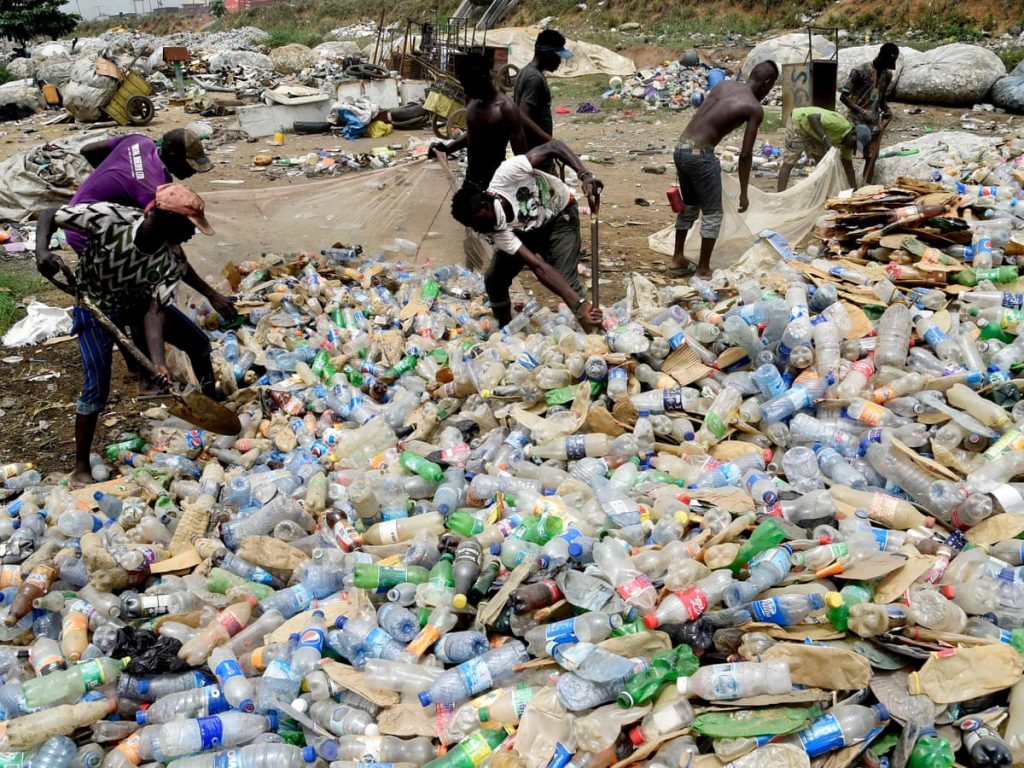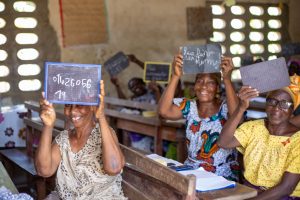
On July 21, 2025, Nestlé Nigeria Plc announced a milestone: it had trained 100 plastic‑waste workers across Lagos and Abuja through its Safety, Health, and Environment (SHE) Training Programme. The objective, the company says, is to enhance the safety, wellbeing, and dignity of plastic waste workers — a segment long ignored in Nigeria’s environmental and labour policy debates. (environewsnigeria.com)
But behind the press release lies a network of questions about informal labour, the gap between policy and practice, and whether such interventions are enough in a country where plastic pollution and hazardous waste are growing crises.
The Announcement: What Nestlé Says
According to the statement, signed by Toju Egbebi, Corporate Affairs Manager, the training was supported by:
- NESREA (National Environmental Standards and Regulations Enforcement Agency) (environewsnigeria.com)
- Recyclers Association of Nigeria (RAN) (Vanguard News)
- Food Beverage Recycling Alliance (FBRA) (Vanguard News)
Topics covered included best practices in occupational health and safety, responsible handling of recyclable materials, fire prevention and rescue techniques, and the use of Personal Protective Equipment (PPE). (Businessday NG)
Each participant received a PPE kit. The training, implemented by ImpactCrest Consulting, is part of Nestlé’s broader environmental sustainability and social inclusion agenda. (environewsnigeria.com)
Speakers at the launch included:
- Victoria Uwadoka, Corporate Communications, Public Affairs and Sustainability Lead at Nestlé Nigeria, who emphasized that this is part of “building a waste‑free future” and recognizing waste workers as essential stakeholders. (Vanguard News)
- Prof. Innocent Barikor, Director General of NESREA, praised the initiative’s prioritization of health, safety and recognition of waste workers. (The Guardian Nigeria)
- Mayowa Elefin, Managing Director of Maladase Ecopreneur Management Company Ltd., speaking for the trainees, said the training was “impactful,” giving staff practical skills that would improve safety, health and productivity. (Environment Africa Magazine)
What the Announcement Doesn’t Say — Gaps, Risks, and Context
While the statement is positive and marks progress, several critical questions remain unanswered. Without them, it’s hard to know whether such programmes move beyond being symbolic gestures toward systemic change.
1. Who are the workers, exactly?
Plastic waste workers in Nigeria are mostly informal: pickers, aggregators, small‑scale recyclers often operating without regular income, contracts, or social protections. Nestlé’s statement does not provide details on:
- The economic status of participants: Are they self‑employed waste pickers? Employed by recyclers? Hired by municipalities?
- The age distribution, gender breakdown, health history (pre‑existing conditions), or literacy levels — all of which affect how training is absorbed and what risks they face.
2. What are their working conditions before the training?
To understand the impact, one must know how hazardous their work was prior. Some hypotheses from past reports:
- Many plastic waste workers sort materials manually under poor lighting, without gloves or masks, exposed to sharp objects, microbial waste, chemicals, heat and rain.
- No formal health insurance; frequent injuries; respiratory issues; exposure to heat, dust and odor.
But as far as public data goes, hard numbers (injury rates, illness prevalence) for informal waste workers in Lagos or Abuja are scarce.
3. How is “dignity” being measured?
Nestlé and NESREA refer to promoting “dignity.” But what does that entail practically? Possible dimensions include:
- Regular income, contracts or recognition from local authorities
- Ability to refuse dangerous work
- Access to healthcare
- Social acceptance, less stigma
The program gives PPE and training — positive steps — but dignity also depends on long‑term structural supports.
4. What happens after the training?
Training alone is seldom sufficient. For lasting change, there must be:
- Follow‑ups or refresher training
- Monitoring of working practices
- Supply of continuous protective equipment
- Enforcement mechanisms so that participants can use the PPE, refuse unsafe tasks without losing work, etc.
- Linkages to health services, emergency response, and possibly insurance for accidents
5. Scale and sustainability
Training 100 workers is neither trivial nor large, given the scale of plastic waste challenge in Nigeria. Some figures for context:
- In Nestlé’s 2023 annual report, the company reported that it helped remove 19,411 tons of plastic from the environment for recycling (well above what it used in its production that same year). (Nestlé CWA)
- The number of informal waste workers in major Nigerian cities is in the thousands or more. Thus, 100 is a drop in a large ocean.
Key questions: Is there plan to scale this programme? Are there commitments from government or other corporations to similar programmes? How is funding sustained?
The Stakes: Why this Matters
- Public health and worker safety: Nigeria has high burdens of pollution, inadequate waste management infrastructure, and frequent environmental hazards. Ensuring that the workforce handling plastic waste does so safely can reduce injuries, exposure to disease, and respiratory illnesses.
- Environmental impact: Plastic waste is a global threat; its mismanagement contributes to waterways pollution, microplastics, climate emissions via incineration or decomposition, and harm to marine life. Formalizing the waste recycling chain can improve sorting, reduce leakage into the environment, and enable circular economy practices.
- Social justice: Waste workers often belong to marginalized populations, sometimes migrants, poor communities. They do essential work for the rest of society, often without recognition, stable income, or protections. Any initiative that treats them as stakeholders rather than disposable labour is an ethical imperative.
- Policy implications: Nigeria has laws and regulations concerning environmental standards (e.g. NESREA), but enforcement is often weak. Private sector‑led initiatives can help fill gaps—but risk being tokenistic if not integrated with public regulation and oversight.
Initial Evaluation: A Partial Win
On the plus side:
- This programme is a rare example of a large corporation explicitly naming waste workers as stakeholders, not merely as “beneficiaries” but as key to achieving a “waste‑free future.”
- Inclusion of NESREA and RAN suggests alignment with regulatory and civil society partners, which may help with credibility and possible scale.
- Practical elements like PPE provision and training in fire safety, rescue, handling toxic materials give real, tangible improvement to safety if properly used.
On the downside:
- Limited in scale (100 workers). Unless expanded, the many thousands of plastic waste workers remain outside formal protections.
- Lack of data on prior risk exposure, ongoing support, and actual follow‑up means the long‑term benefits are uncertain.
- Potential gap between what is trained and what is applied: If waste pickers don’t have consistent access to PPE, or their operations force them to cut corners (because of economic pressure), many training gains might be lost.
Recommendations & What Investigative Follow‑Up Should Seek
To determine whether this initiative truly transforms lives, an investigative approach should include:
- Interviews with workers: before, during, after the training, to understand their lived conditions, changes in work practice, income, health.
- Observational visits: to recycling sites, waste dumps, to see who is using PPE, what safety practices have changed.
- Data on injury / illness: try to access health clinic records or surveys among waste workers to see baseline incidence of occupational disease.
- Cost‑analysis: what cost per worker, what scale needed to cover major risk in Lagos / Abuja.
- Government policy review: what laws/regulations protect waste workers, whether there’s enforcement, and what role private sector should or could play.
Conclusion: Symbolic, but Potentially Foundational
The Nestlé SHE training for 100 plastic waste workers is more than a PR item—it represents one of the few corporate efforts in Nigeria directly aimed at improving the conditions of informal environmental labour.
But it is not sufficient. Without scale, structural support, ongoing monitoring, and integration into regulatory frameworks, it risks being a symbolic act that does little to alter the deeper fault lines: poverty, informality, environmental neglect.
For Nigeria to move toward a truly “waste‑free future,” frontline workers must not only be trained and temporarily equipped; they must be empowered, protected, and embedded into systems that guarantee safety, fair compensation, and dignity.
References
- “Nestlé Nigeria trains 100 plastics waste workers for sustainable future,” Vanguard News, July 25, 2025. (Vanguard News)
- “Nestlé Nigeria empowers 100 plastics waste workers to boost sustainable recycling,” The Guardian Nigeria, July 21, 2025. (The Guardian Nigeria)
- “Nestlé, NESREA, others deepen collaboration to enhance safety, waste managers’ wellbeing,” BusinessDay NG, July 22, 2025. (Businessday NG)
- Nestlé Nigeria 2023 Annual Report. (Nestlé CWA)










